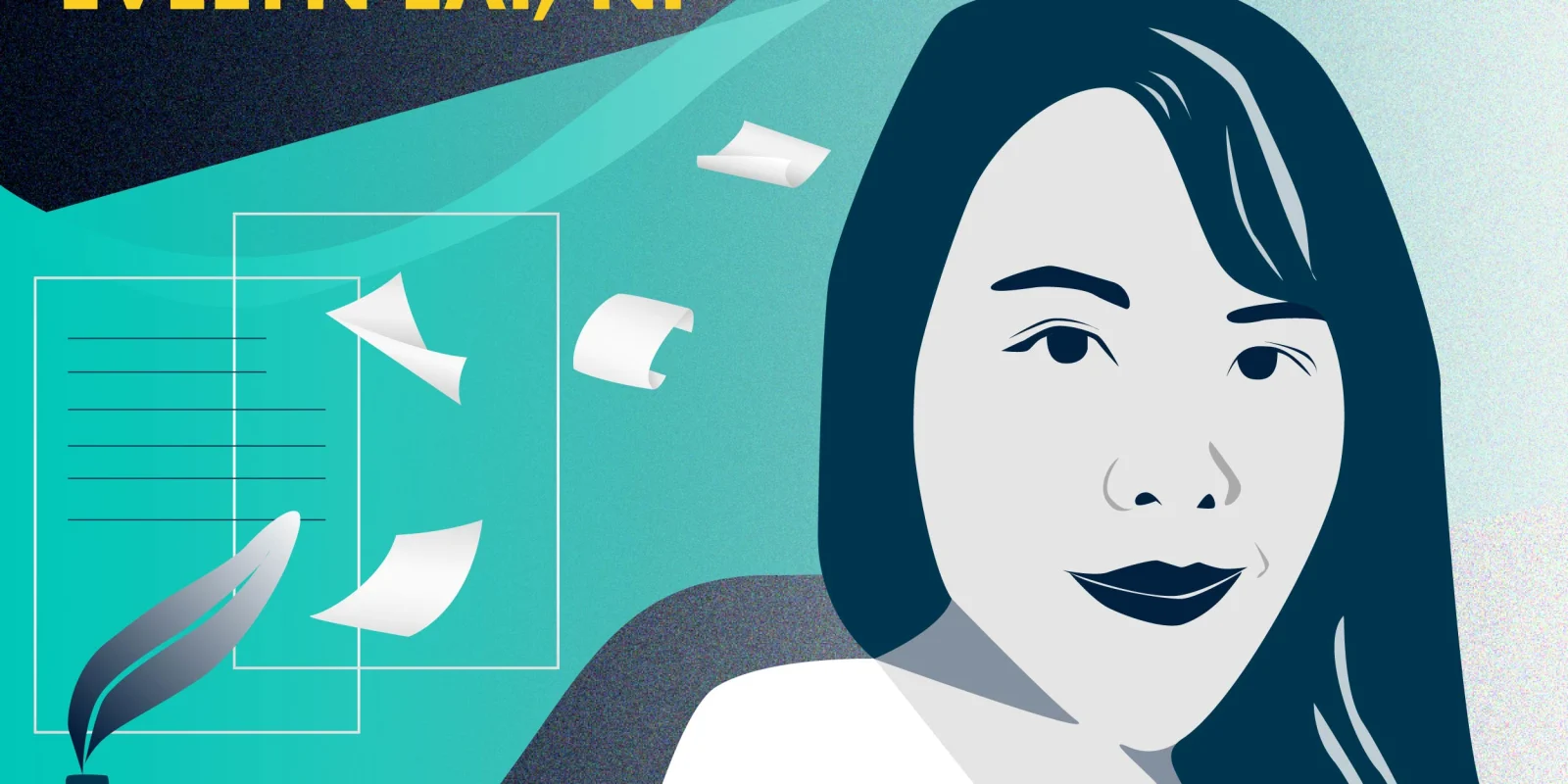
Evelyn Lai arrived to patient care via her love of stories and a background in English Literature served as the foundation for her nursing career. She is a Yale-trained pediatric nurse practitioner and recent graduate of Columbia University’s M.S. in Narrative Medicine program. Evelyn has worked predominantly in primary care for underserved communities of color, as well as in infectious disease at the Children’s Hospital of Los Angeles. Evelyn writes academically and creatively and is a 2018-19 Doximity Op-Med Author. Besides writing, she also loves music and has been known to sit down and play pianos in hospital lobbies. Evelyn Lai may very well be one of the most artistic nurse practitioners to ever care for patients.
AR: How do you manage to balance writing and clinical work?
EL: Being a part of the Doximity Authors Program has helped me become a better writer because the monthly deadline keeps me accountable. When I’m tired after work, the last thing I want to do is write, but it helps me process patient cases and general issues in pediatrics and medicine better.
AR: And where do you find inspiration for your writing?
EL: I’ve been a clinician for seven years, and some of the stories I’ve written about come from the very beginning of my career, and some are more recent. I find inspiration from meaningful clinical moments. They can be complex moments like facing the death of a child, or more simple moments like praising the teen mom that successfully learned how to bottle-feed her baby. Whether the moment is big or small, the emotional interactions I have with my patients are huge. Sometimes I’ll even scribble a thought down in my notebook or type a note in my cell phone to remind me to return to it later and attempt working it out through writing.
AR: Narrative Medicine can be difficult to define. What does Narrative Medicine mean to you?
EL: Narrative Medicine is an outlet and a way of taking care of myself so that I can keep returning back to work and caring for my patients. I don’t think I’ve met a clinician who hasn’t experienced burnout, young or old. We as clinicians are bombarded with trying to be more productive, as well as navigating complex systems like our patients’ health insurance. How do we deal with that? It’s really hard! Some of the key practices of Narrative Medicine are simple enough for anyone to try: creative writing, deep reflection, and close listening.
AR: Why should clinicians practice Narrative Medicine?
EL: I know it can be difficult getting the entire health care team to work together seamlessly since everyone is so busy. Nurses, medical assistants, receptionists, physicians, nurse practitioners, and more - we all have to communicate better. When we are stressed and not listening to each other things get lost, leading to errors and negative patient outcomes. Narrative Medicine emphasizes the need to have empathy for one another by listening, to try to understand where the other is coming from. It’s realizing that there are different perspectives to every issue. Having this mindset can improve the work environment by unifying the team to work collaboratively for better patient outcomes. Oftentimes, patients are frustrated that the clinician isn’t listening and vice versa, clinicians feel like the patient isn’t listening. Patients and clinicians alike can utilize these Narrative Medicine tools. At the end of the day, both the patient and clinician want the encounter to be a good one. I use Narrative Medicine to reduce misunderstanding, resentment, burnout, and for all-around better patient care.
AR: What are some of the challenges of being a nurse practitioner?
EL: One of the toughest parts about working as a nurse practitioner is dealing with the hierarchy. It can be a struggle of which credential is better, who has more knowledge than whom, and I don’t think that’s helpful to patient care. This can lead to discord and a fractured interdisciplinary team. I know that as a nurse practitioner, I’m not a doctor, so if I have a relevant question, of course I’ll go to the attending physician. And physicians can come to me with questions too. It’s about realizing that we all have different trainings and we all ended up here via different routes. Older doctors sometimes ask me, “What’s a nurse practitioner?” It can be a generational thing - there are more mid-level providers now than ever before. I say, “I’m a nurse with more specialized training so I can diagnose, make assessments and plans, prescribe, but I am not a doctor.” All assessments are important - the nurse’s, the NP’s, the physician’s. I don’t think of myself as better than anyone else - they’re just different roles.
AR: How can interdisciplinary clinical teams work better together?
EL: We are all part of a team. But the hierarchy bothers me, especially in the hospital. When we are all siloed it decreases empathy. A good working relationship comes down to good communication, respect, and empathy. It’s realizing that everyone has the same goal and that it’s not a competition of who knows the most medical knowledge. Let’s just give good, kind, compassionate patient care. If each of us were able to reflect on our roles and clinical encounters throughout the day through writing, processing, and sharing, we would all be better for it. Narrative Medicine workshops could be a quality improvement intervention! I would love to see this kind of thinking be prioritized. It can be transformational.






